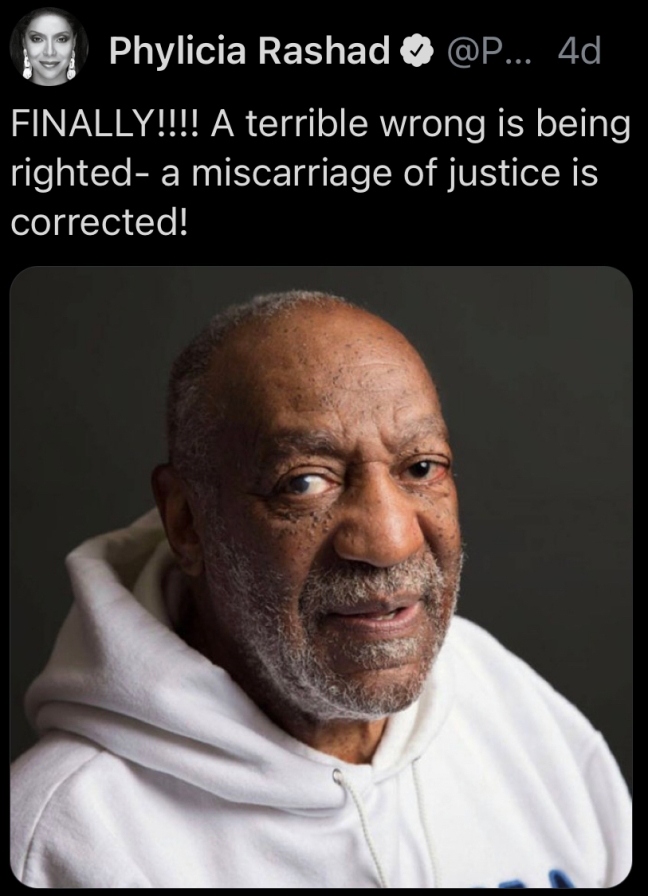Black Girl Magic is a double-edged sword. Founded by CaShawn Thompson, the mantra uplifts and praises the accomplishments, beauty, and other amazing qualities of Black women. But on the flip side, it inadvertently pressures Black women to maintain a standard of excellence at all times (which Thompson didn’t want for the movement).
Black women have always been excellent. They’re trailblazers, overachievers, multi-hyphenates, and matriarchs.
But because of the storied lineage of amazing Black women, there is an immense pressure for the generations to follow to uphold this herculean task of continued excellence. And with the added 24/7 social media showcase of Black women all over the world who are moving heaven and earth to beat the odds, it seems anything less isn’t worthy of celebration.
I’ve seen the residual effects of Black Girl Magic play out among the Black women in my life.
They’ve had to temper their emotions in corporate settings.
They’ve feared starting entrepreneurial ventures.
They’ve felt the pressure to be everything to everyone.
They’ve felt ostracized for bucking gender roles and the status quo.
And the list goes on and on.

Recent news has shown the toxic underbelly of Black Girl Magic.
Let’s start with Phylicia Rashad.
Mrs. Claire Huxtable tweeted that.
Ms. Rashad is one of our icons and has always embodied grace—until the first of July in the year of our Lord 2021.
After a handful of years behind bars, Bill Cosby was released from prison on July 1st after his sexual assault conviction was thrown out. Upon this news breaking, Ms. Rashad took it upon herself to tweet this:

A dean at one of the most prominent HBCUs in the country tweeted that.
One of the classiest Black women in Hollywood tweeted that.
Mrs. Claire Huxtable tweeted that.
And on top of that, Stephanie Mills—another Black woman legend—doubled down on what Ms. Rashad said and bigged her up.
Duanecia’s tweet holds true because Cosby, one of the most prominent Black entertainers of our time, didn’t raise many red flags because that’s “just the way it was” back in the ‘70s, ‘80s, and ‘90s. Powerful men—white and Black—took (and still take) advantage of Hollywood’s eyes-wide-shut culture and did what they desired with women.
Cosby was no different. And unfortunately, his straight-edged brand and public demeanor is likely why he was able to get away with drugging and sexually assaulting women for YEARS. Cosbyites around the world couldn’t fathom Black America’s TV dad moving the way he was.
And for what it’s worth, the running joke that Cosby’s desire to receive a stake in NBC led to the onslaught of sexual allegations is tasteless.
Think of the courage it took for those women to speak out.
Think of the shame and trauma they and their families endured.
Think of the fact they knew a fraction of a fraction of sexual abusers are charged in the court of law—and they still spoke out anyway.
And yet, you still get comments from Black folks (sadly Black women too) like this:



Sadly, at times, Black women elders are the gatekeepers of respectability politics—which, like most things, is rooted in white supremacy.
Our great-grandmothers and grandmothers had to do what they had to do to adapt and survive in a blue-eyed, blonde-haired world.
Straightening their hair and talking proper in corporate settings.
Cooking, cleaning, and doing other household chores because it’s what’s expected.
Not wanting to draw too much attention to themselves by not speaking up against ill and sexist behavior in the workplace and at home.
Not holding Black folks—particularly Black men—accountable under the guise of not wanting to “correct them in public.”
Telling grown, young, thick Black women to cover up and wear looser clothing.
That’s just the tip of the iceberg.
Because survival and providing for their families was at the forefront of their minds, our women elders didn’t have time to learn about the intricacies of their children, who would later be our parents, uncles, and aunties. As long as they had their children’s basic necessities met, that’s all that mattered.
Our great-grandmothers and grandmothers had to do what they had to do to adapt and survive in a blue-eyed, blonde-haired world.
They didn’t understand André was having trouble focusing in school because he was autistic—not because he was a bad student.
They didn’t understand Angela was bipolar—not just moody.
They didn’t understand the reason for Jerome’s short fuse—it was because he was picked on by his teammates for being more feminine and eccentric.
They didn’t have time to understand.
And as a result, their children grew up deprived of emotional intelligence, grace, and patience.
I’m glad, however, the last three generations or so of Black mothers are shedding the teachings of their elders and adopting more inclusive, patient, and open-minded parenting. They’re moving away from the respectability politics of yesteryear.
But there’s still a handful of toxic women elders around who aren’t afraid to speak a little misgoynese and give their warped perceptions of Black Girl Magic from time to time.
Case in point is Sha’Carri Richardson’s situation.
I long for the day when trauma stories aren’t a barometer for buying into Black people’s achievements.
A young, bold, tenacious Black woman with red-orange hair and rainbow-colored nails who ran some of the fastest times ever in the 100-meter dash at the U.S. Olympic Trials a few weeks ago. And in her post-race interview after winning the 100-meter dash, she announced her biological mother had died recently (which she found out from a reporter nonetheless)…BLACK GIRL MAGIC.
The following week, news broke that she failed a drug test because she smoked marijuana to cope with her loss. And unfortunately, older Black women, who were among the most vocal fans of Richardson just a week prior, became her loudest critics. My timelines were full of holier-than-thou Tweets and posts for three days.
I long for the day when trauma stories aren’t a barometer for buying into Black people’s achievements.
Black Girl Magic is a wonderful thing to celebrate. But all Black girls and women should be celebrated—not just the exceptional ones.
Protect all Black women and girls at all costs.


